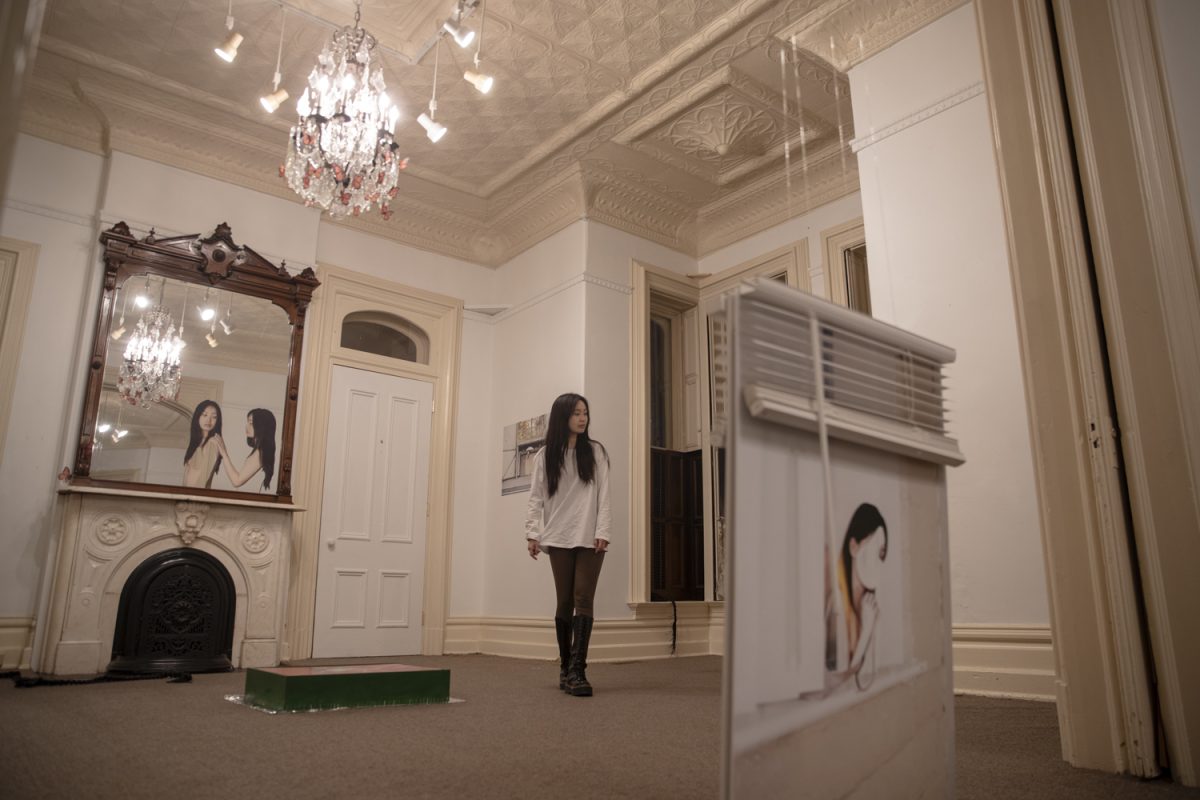During approximately 126 years, “consulting detective” Sherlock Holmes has become one of the most portrayed fictional characters in film history. But few adaptations have garnered the adoration that the BBC’s television series “Sherlock” has; its obsessive and ever-growing fan base rivals even Sir Arthur Conan Doyle’s original following.
The third season of “Sherlock” — created by “Dr. Who” producer Steven Moffat and writer/actor Mark Gatiss — premièred on New Year’s Day in the United Kingdom and in the United States on Jan. 19 on PBS. After a two-year hiatus, this modern-day Holmes donned his trench coat once again for three more electric 90-minute episodes. And in doing so, season two cliffhangers were resolved, beloved characters were pushed to new and extreme lengths, and jaws dropped the world over. (Or was that just me?)
Without divulging too much, I’ll simply say that season three is “Sherlock” as fans have never seen it, with more humor, character development, and blatant nods toward (and tongue-and-cheek rejection of) the array of fan fiction and theories surrounding the show. Viewers are finally rewarded with an explanation about how Holmes managed to fake his own suicide at the end of the last season, but like much of the show’s action, it is presented only after subjecting the audience to several deceptive and often hilarious twists.
Benedict Cumberbatch is stronger than ever as the eccentric sleuth, injecting a previously unseen degree of wit and vulnerability into the title role. This is true of Martin Freeman’s Dr. John Watson as well — his reaction to Holmes’s appearance in the first episode, “The Empty Hearse,” after believing his best friend dead for two years is quite moving. And the addition of John’s vivacious fiancée Mary Morstan (played by Freeman’s real-life partner Amanda Abbington) doesn’t detract from the Holmes/Watson dynamic, but it adds an intriguing new dimension.
The marriage of John and Mary in the second episode “The Sign of Three” is the funniest and yet most tear-jerking installment to date. Even with the uproarious “stag night” scene (in which a drunk Holmes and Watson go “clueing for looks” after visiting a nightclub) and a nail-biting murder mystery, Sherlock’s surprisingly earnest Best Man speech anchors the episode.
As with its season-one and -two predecessors, the season-three finale, “His Last Vow,” isn’t short on curve balls; Holmes and Watson face their most chilling villain yet: the blackmailing Charles Augustus Magnussen (Lars Mikkelsen). Prepare for shock and awe — and another heart-pounding cliffhanger.
Overall, season three lived up to my expectations, but in very few of the ways I expected. The characters in “Sherlock” come alive this season — Cumberbatch’s and Freeman’s as well as their supporting cast — which enhances the crime drama. In addition, the creators have outdone themselves stylistically, with delicious cinematography and dynamic illustrations of Holmes’ deductions.
Despite the long hiatus between new seasons of “Sherlock,” the quality of the final product exceeds that of many American shows on air today (and certainly the CBS series “Elementary,” inspired by Britain’s modern Holmes adaptation). If you choose to hop on the roller coaster that is BBC’s “Sherlock,” you may have to nurse emotional damage, character crushes, and painful degrees of suspense for years on end. But trust me — it’s worth the ride.
Score: 4.8 out of 5 stars
WATCH: Tune in to PBS at 9 p.m. on Jan. 26 to see “The Sign of Three” and on Feb. 2 for “His Last Vow.”
CATCH UP: Keep an eye out for repeat airings of season three’s first episode “The Empty Hearse” on PBS’s “Masterpiece Mystery.” You can find “Sherlock” seasons one and two on Netflix.






